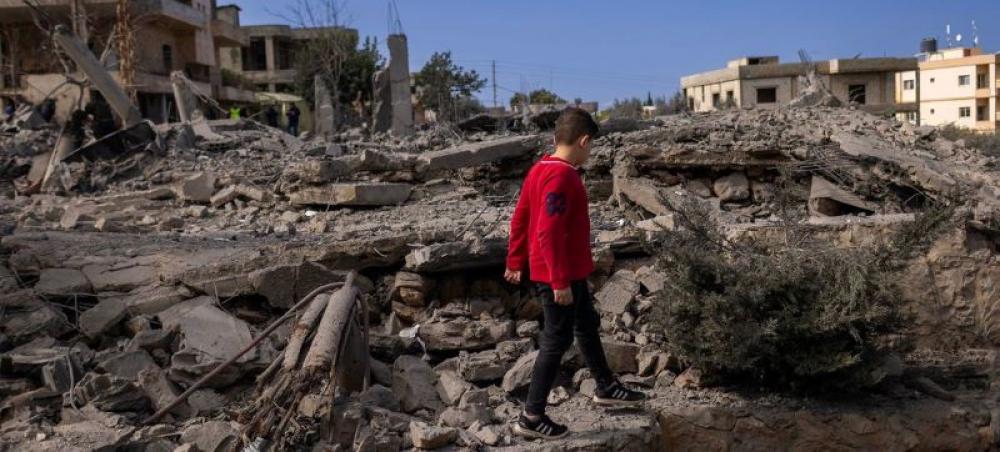Just Earth News | @justearthnews | 02 Aug 2024, 11:18 pm Print
 Middle East
Middle East In Southern Lebanon, a boy walks among the ruins of a house destroyed by an Israeli airstrike. Photo Courtesy: UNICEF
The US Embassy in Jerusalem has issued an advisory to its citizens urging them to be cautious and closely monitor the security situation in the Middle East amid rising tension.
"Due to the increase in regional tensions, the U.S. Embassy in Jerusalem is continuously and closely monitoring the security situation. The U.S. Embassy reminds U.S. citizens of the continued need for caution and increased personal security awareness (including knowing the location of the nearest shelter) as security incidents, including mortar and rocket fire and unmanned aircraft system (UAS) intrusions, often take place without any warning," read the statement.
"The security environment is complex and can change quickly.U.S. citizens are encouraged to read the current Travel Advisory and Country Information Page for Israel, the West Bank, and Gaza, that advises U.S. citizens to be aware of the continuing risks of travel to Israel, the West Bank, and Gaza due to the security situation and heightened regional tensions and warns against travel to Gaza and to northern Israel within 2.5 miles of the Lebanese and Syrian borders," the statement further said.
The top UN envoy in the Middle East called on Friday for urgent action to address the “growing risk” of regional escalation following recent deadly attacks in Lebanon, the Syrian Golan Heights and Iran linked to the war in Gaza.
Tor Wennesland, UN Special Coordinator for the Middle East Peace Process, issued a statement saying he has engaged in “critical discussions with the relevant parties and Member States in the region, including Lebanon, Egypt and Qatar, in support of regional de-escalation”.
“I underscored the urgency of addressing the growing risk of a serious escalation, which poses a substantial threat to regional stability,” he said. “We examined the ongoing efforts to mediate and de-escalate the situation and explored ways to prevent a spillover of the conflict.”
The envoy “reaffirmed the necessity of urgent, coordinated action to prevent further deterioration of the situation”.
He stressed that it was crucial to “act decisively and collectively to address the immediate threats and lay the groundwork for a lasting peace”.
The head of UN Peace Operations, Jean-Pierre Lacroix, concluded a four-day visit to Lebanon on Friday – part of a wider mission to the Middle East - where he strongly stressed the need for de-escalation and a return to a cessation of hostilities.
In meetings with senior officials, the peacekeeping chief highlighted the risk of a wider conflagration and called for maximum restraint and a cessation of the ongoing intensified exchanges of fire across the Blue Line between Lebanon and Israel.
Lacroix also met with members of the diplomatic corps, as well as UN officials and peacekeepers serving with the UN Interim Force in Lebanon.
- United Kingdom launches eVisa for Indian visitors starting today — Here’s what travellers need to know
- Abandoned at birth, Punch the macaque finds global love as crowds flock to Tokyo zoo
- YouTube Premium Lite just got a massive boost — Know all details
- Trump claims he stopped 35 million deaths by stopping India-Pakistan war
- Entrepreneur decides to shut down 16-year old eatery in London, cites harassment and Pakistani attacks





-1763561110.jpg)
